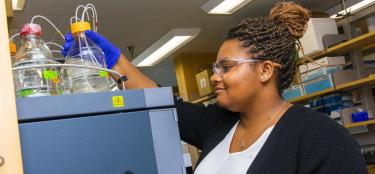WPI’s master’s in Chemical Engineering engages you in important global research with off-site programs that are almost always international, so you can see impact of technology advancing society, from improving the speed and accuracy of medical diagnostics, to designing bioprocesses for producing anti-cancer drugs, to developing effective alternatives to fossil fuels.
With a thesis or non-thesis option, your chemical engineering masters offers you one-on-one faculty mentorship and advising, a collaborative culture, challenging chemical engineering courses, and the hands-on learning opportunities that are hallmarks of the WPI experience. The grad-level seminar series also prepares you for career success by teaching you professional development and placing you in off-campus opportunities like co-ops and working in national labs.

Chemical Engineering: Career Outcomes
What does a career in Civil and Environmental Engineering look like? Browse WPI and national data to learn more about companies who have hired WPI graduate, average salaries, job outlook, and more.
PowerBI Embed
While pursing your master’s in Chemical Engineering at WPI, you’ll employ active learning, teamwork and communications skills, and knowledge of up-to-date practices to solve diverse real-world problems involving the production or use of chemicals. You’ll have your choice of interesting interdisciplinary courses and chemical engineering courses to achieve your goals, including Kinetics and Catalysis, Chemical Reactor Design, and Fuel Cell Technology.
Plus, your education will extend beyond the classroom by presenting an annual seminar on your research, and having the opportunity to make scientific presentations at conferences and author scientific journal articles.
Graduate Student Professional Development
WPI is an emerging leader in graduate student professional development and offers a number of opportunities for graduate students to develop their interests and skills outside of a traditional research context. WPI’s Graduate School supports a robust Office of Professional Development and offers annual seminars and workshops as part of the STARS Program. The Chemical Engineering Department offers an annual Graduate Student Seminar Series where students explore creation and implementation of Individual Development Plans, meet industry experts as part of career panels, and present their research to both peers and faculty.
Research areas In Chemical Engineering include the following:
- Biofuels
- Biopolymer interfaces
- Cellular and metabolic engineering
- Computational chemistry
- Nanotechnology
- Reaction engineering

Graduate students use WPI’s computational facilities to advance their work in simulations, bioinformatics, and big data analysis.

Students and faculty work closely as they conduct research in multidisciplinary, open lab environments within state-of-the-art facilities.

Cutting-edge research in our labs makes a direct impact on human life.

Lab work is essential, but faculty want students to succeed in all aspects of their careers so professional development opportunities are offered and encouraged.

From medical devices that stave off or prevent infections to advances in additive manufacturing, research in the chemical engineering department brings global problems to a human scale.

Chemical engineering is a vibrant, research-active department with dedicated and innovative faculty and students.

WPI’s chemical engineering research areas address pressing global challenges, including advanced functional materials, molecular bioengineering, sustainable energy engineering, and engineering education.
A big advantage in WPI’s master’s in Chemical Engineering is your access to cutting-edge facilities and labs for interdisciplinary research. From our main facilities in Goddard Hall and Gateway Park to our many research centers, you’ll join other researchers across disciplines to use specialized equipment and novel processes and technologies.
Graduate Studies Series
Team members from Graduate & Professional Studies host quick and convenient webinars designed to highlight popular topics when starting grad school. Take a deep dive into specific areas of interest such as how to secure funding, how to ace your application, an overview of student services, and more!
Faculty Profiles

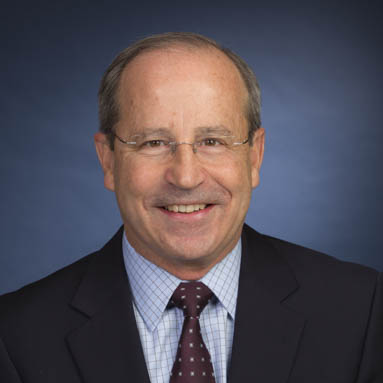
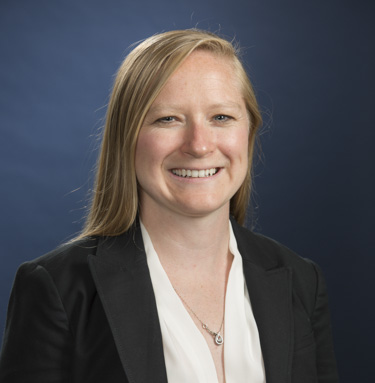
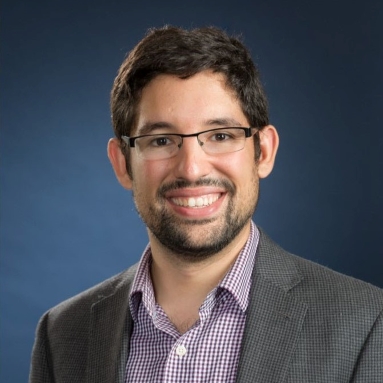
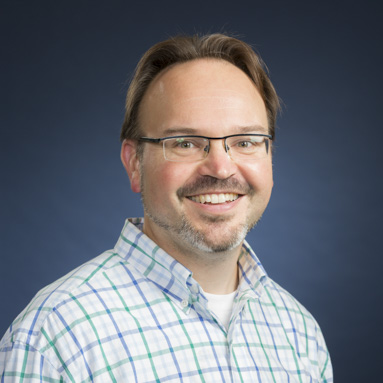
Have questions?
WPI's dedicated graduate student support team can help.
Refer a Friend
Do you have a friend, colleague, or family member who might be interested in a WPI graduate program? Click below to tell them about our programs.
Interested in Other Chemical Engineering Degree Programs?
Are you looking to begin your path in chemical engineering? WPI’s bachelor’s in chemical engineering gets you started and offers robust opportunities for research, interdisciplinary work, and a flexible curriculum focused on your specific interests. Are you already thinking of an advanced degree? Our PhD in chemical engineering program is committed to “research for a purpose,” and that means your work addresses a societal need and therefore, has a real impact. Maybe you're looking for a professional degree where you can gain an advanced chemical engineering foundation with an industry focus? Explore our professional MS in chemical engineering where you will work on industry-specific problems within companies and even government. Our chemical engineering degree programs will help you reach your career goals and discover exciting challenges.
Explore Advanced Topics in Modern Chemistry or Biochemistry Instead
Are you a chemist looking for a more targeted MS degree focused on biophysics and genes? Our master’s in biochemistry dives into advanced topics in molecular biology, genetics, and more. Maybe you are interested in life sciences, materials research, and organic chemistry? Our master’s in chemistry covers advanced topics in modern chemistry. Are you intrigued by industrial waste, physicochemical processes, and quality control of storm water in our environment? A master’s in environmental engineering explores cutting-edge research as it pertains to protecting and preserving our environment.
